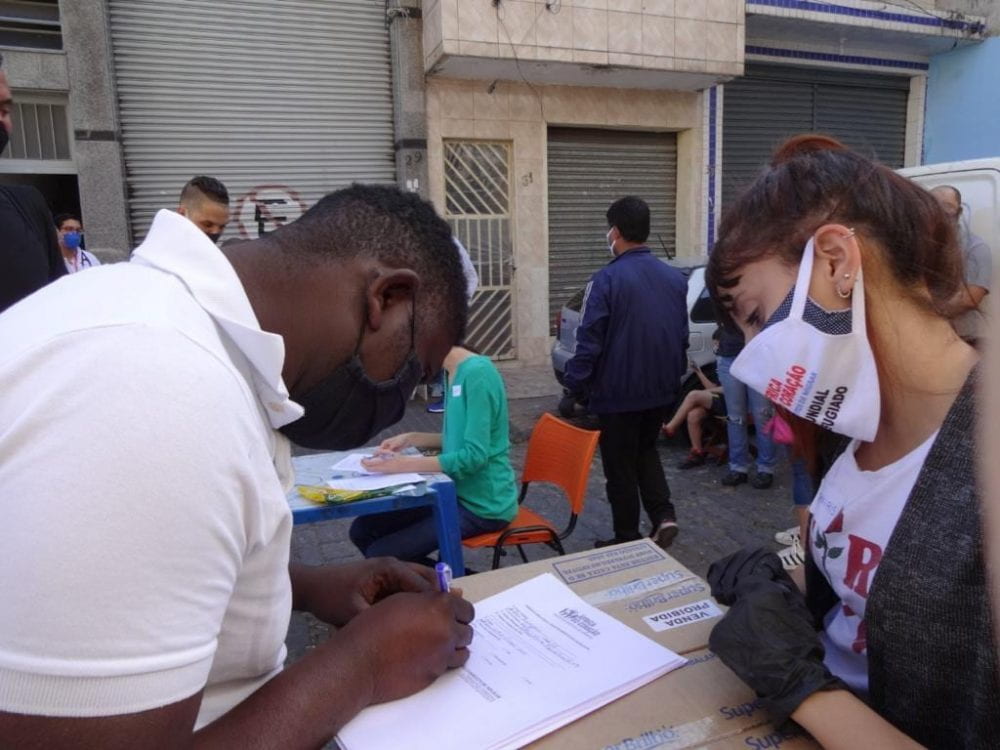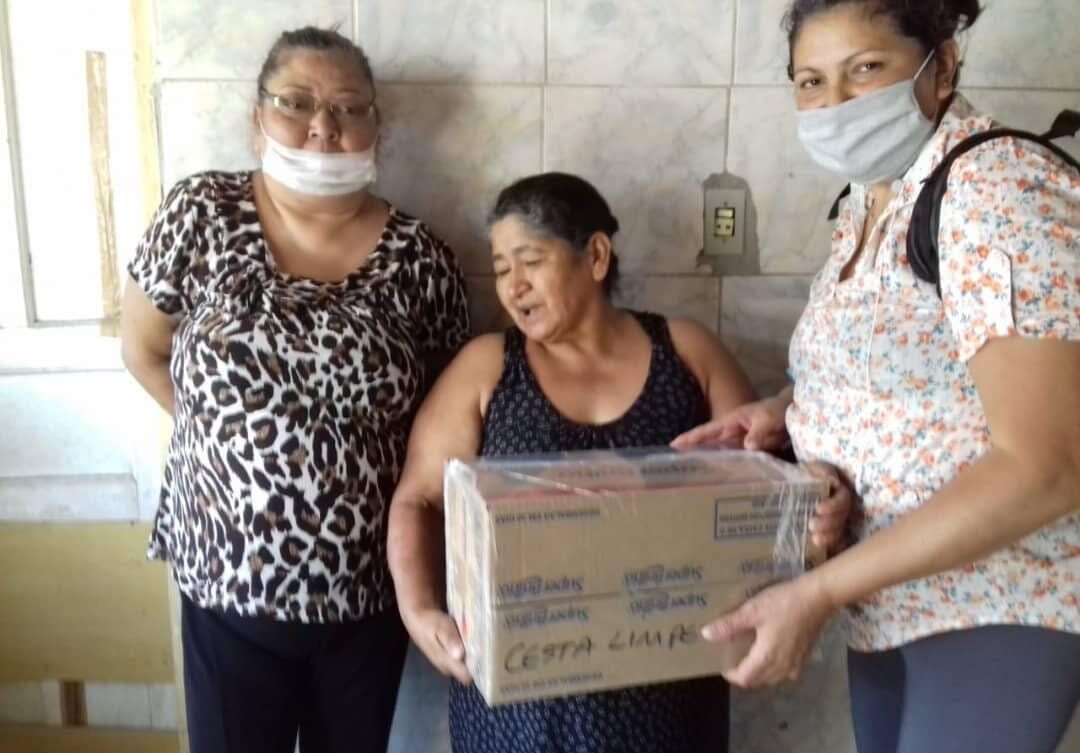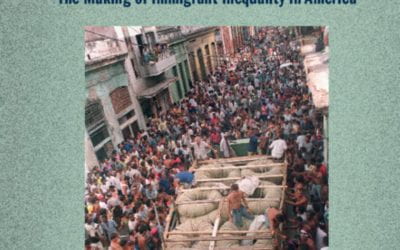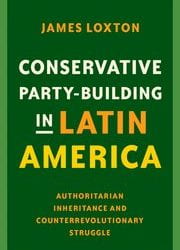Migrant Aid Organizations in São Paulo during COVID-19
Agility in Crisis
I arrived in São Paulo in February 2020 on a Fulbright grant to study how Syrian refugees were integrating into society. I was quickly struck by the diversity of the city. In addition to Syrians, São Paulo is home to 75,000 Bolivians concentrated in the Bom Retiro area. The formerly Japanese Liberdade neighborhood hosts many of the 27,000 Chinese-born residents. 16,000 Haitians and 14,000 South Koreans have also immigrated to São Paulo in recent years, making it the most diverse city in Brazil.
Many nonprofits are trying to help with the integration of these different populations. They typically provide language instruction, legal aid, cultural orientation and economic empowerment to new arrivals, especially those who are fleeing violence or environmental destruction in their homelands.
When Covid-19 arrived in São Paulo in March of this year, it rapidly changed the environment in which these organizations were working. That same month, the Fulbright Commission ordered all grantees to return to the United States, making it impossible for me to continue my original research. I quickly reoriented my investigation, and interviewed eight leaders of prominent non-profits in São Paulo to learn how they were adapting to the pandemic. I found out that while Covid-19 has brought on special and acute challenges for organizations and their clients, most have been remarkably successful in adapting to provide new services to individuals in increasingly precarious conditions.
As is often the case, even without Covid-19, migrants in São Paulo are among the most vulnerable populations in the city. If they work formally, they tend to occupy the lowest-paying jobs. A few, especially Syrians, have successfully established brick-and-mortar businesses in the city. More often, migrants work in the informal sector of the Brazilian economy, either selling goods on the street or working without documentation in sweatshops or on construction sites.
Informal labor employs both migrants and Brazilians alike, making up an enormous portion of the Brazilian economy. In 2019, 32% of the workforce in Sao Paulo worked sem carteira assinada, or without proper documentation from an employer. This greatly limits people’s abilities to claim their rights as workers such as workman’s compensation, severance pay, or maternity leave. As has been the case worldwide, informal and formal commerce has slowed precipitously as a result of the pandemic, but informal workers have nowhere to turn when production or sales halt.

Basic food canasta distribution drive organized by Africa do Coração, an entirely migrant-run non-profit. Courtesy of Abdulbaset Jarour.
Those who relied on selling products on the street have far fewer customers, and businesses facing their own slowdowns have delayed or canceled orders for many of the products that migrants help produce. Though the shock to the informal economy has impacted many segments of Brazilian society, particularly low-income comunidades, migrants in the sector are especially vulnerable. Because they often lack the social and familial networks that native Brazilians can rely on in times of need, a single week without income can be disastrous. This is especially true for migrants who have arrived recently in Brazil.
In March, the Brazilian federal government rolled out a stimulus plan intended to dampen the impact of the economic depression, especially for informal workers with no company-provided safety net. All migrants, including those without documents authorizing their residency in Brazil, are eligible — individuals can even use a foreign passport to claim their benefits. However, Victor del Vecchio, of the legal aid organization ProMigra, says that many migrants are uninformed of their rights to these benefits. Furthermore, migrants who have applied for the stimulus face challenges, since those handling the claims often mistakenly assume that undocumented workers are ineligible.
In the absence of family or government help, many nonprofit organizations have historically filled gaps for migrants. In the face of Covid-19, they have continued their efforts, though not without challenges. Whether legal help or Portuguese language instruction, the large majority of aid activities across all the organizations I interviewed previously took place in-person, thus requiring a complete digital transformation. For example, Nilton Carvalho, who runs communications at Caritas SP, one of the largest nonprofits, says that under quarantine “all four programs (Assistance, Integration, Protection and Mental Health) are attending to clients virtually.” These changes required unforeseen investments in software, hardware, internet service and training. In addition, they fail to reach clients who do not have computers or internet access. Some organizations like Estou Refugiado and Abraço Cultural have provided some of their migrant partners with internet connectivity and devices, but the vast majority of migrants have not been as fortunate and are unlikely to be able to pay for these items independently.

Basic food canasta distribution drive organized by Africa do Coração, an entirely migrant-run non-profit. Courtesy of Abdulbaset Jarour.
Some organizations focus on economic empowerment by offering migrant entrepreneurs a formal venue to sell their services. At Migraflix, services include everything from cooking classes taught by Syrian women on how to make the best kibe, a Middle Eastern-origin snack immensely popular in Brazil, to traditional Zulu dance classes taught by an instructor from South Africa.
Abraço Cultural focuses on language instruction, hiring migrant instructors to teach Arabic, English, French and Spanish to Brazilian students in São Paulo and Rio de Janeiro. These organizations have also had to redirect their limited capital to digitizing their services. Moreover, because they are market-oriented, they face the added challenge of falling demand amid the economic recession. Instituto ADUS, which also offers language classes taught by migrant professors, expects their enrollment to be cut in half by July, which would severely limit the organization’s ability to continue to employ teachers and fund services for non-teacher clients.
Covid-19’s challenges have also presented opportunities for adaptation and growth for some organizations. Abraço Culturalis in a relatively favorable position, with a wide network across multiple cities and a rainy-day fund it can draw upon if revenues from classes fall short. It has equipped all of its professors with the technology needed to continue teaching class remotely. Mari Garbelini, a coordinator at the organization, says, “I think it is a good opportunity to generate more income for our professors, because now [with classes] online, we can reach not only São Paulo and Rio de Janeiro, but all of Brazil.” While demand in the short-term has fallen, she is optimistic that it will eventually return, especially given classes’ expanded reach. Other organizations with smaller operations and reserves, however, are more vulnerable to financial collapse, and may not subsist if the slowdown continues.
Even organizations that did not rely on sales have found funding services to meet migrants’ increased needs challenging. In the words of Luciana Capobianco, executive director ofEstou Refugiado, finances have “gone to zero” with Covid-19. All except the largest organizations have, like private citizens, been obliged to apply for emergency grants to tide themselves over financially, highlighting their own precariousness. (ProMigra, which relies entirely on volunteer labor, is an exception.) Nevertheless, even in the face of their own insecurity, nonprofits have done what they can to redirect resources to their clients and partners.
Five of the eight people I interviewed said that their non-profits were organizing donation drives aimed specifically at alleviating the most urgent needs among those hardest hit by Covid-19. This usually involves distributing cestas básicas—packages of basic foodstuffs, like rice and cooking oil. With other living expenses and no income, many migrants would not be able to afford these items otherwise. In this capacity, even if unable to themselves offer financial aid, organizations have continued to provide key services to their clients by leveraging their own networks to mobilize donations, basically serving as substitutes for the familial or social networks that migrants lack.
With physical operations brought to a halt, many organizations have focused on their informational and educational activities. Especially early in the pandemic, much of what organizations published was guidance in multiple languages on how to protect against the virus. Basic measures like regular hand washing and mask wearing are important for all citizens, but for migrants living and working in sweatshops in the center of the city, they are critical. Organizations have also taken measures to counteract widespread misinformation on COVID. For example, Folha de São Paulo reported on one case of a rumor circulating on WhatsApp that insisted that Bolivians had greater immunity to the virus than other groups. In an environment in which this type of misinformation has been rampant at the highest levels of Brazilian government, nonprofits are doing what they can to ensure that their clients have access to sound advice.
In addition to public health information, organizations have also highlighted both the precariousness and resourcefulness of their clients and partners in the face of the pandemic and shared ways in which privileged individuals can help out. Abraço Cultural created a platform on its website called “Abraço Daí” designed to share how migrant entrepreneurs are reinventing their businesses to adapt to new circumstances (for example, by making traditional food to go in marmitas, or packed lunches, or by producing masks instead of clothing). Many of the entrepreneurs working with Migraflix have similarly adapted their services. As a result, the organization has harnessed its social media presence, advertising new virtual offerings, and providing educational webinars on how others can digitize their operations. Instituto ADUS’ services focus on preparing migrants for the labor market. Odette Rahel, the organization’s financial officer, claims that hiring has slowed but not completely halted despite the crisis. The organization has offered their own webinars on writing CVs so that clients are prepared as opportunities become available.
One of the informational efforts that has had the most impact is the #RegularizaçãoJá (#RegularizationNow) campaign, organized by ProMigra, Missão Paz and 16 other South American migration advocacy organizations. The campaign attempts to address the barriers to accessing public services. It calls on governments across the continent to take action similar to that of the Portuguese government. In April, Portugal granted temporary residency status to all immigrants and asylum seekers in the country to ensure universal access to all public services during the pandemic.
While Brazil already provides a universal healthcare system that serves documented and undocumented habitants alike, migrants still face challenges in entering the formal labor force, accessing public education and claiming other rights and benefits they already are entitled to. Widespread regularization would make it easier for migrants to access all their rights and improve their overall wellbeing in the face of the pandemic. For example, by facilitating migrants’ entry into the formal labor market, widespread regularization would reduce the risks they face due to the commercial slowdown brought on by the virus. While waiting for the Brazilian government to take this action, ProMigra and Caritas have continued to provide adapted pro-bono services. Victor del Vecchio of ProMigra says that a disproportionate amount of the organization’s time is devoted to helping migrants claim the emergency benefits to which they are entitled. The persistent difficulty that some migrants have had in collecting their benefits only goes to emphasize the need for the #RegularizaçãoJá campaign, which would eliminate the confusion as to who is eligible and who isn’t.
The initiatives I have described show that the organizations devoted to supporting migrants in São Paulo have been remarkably agile in continuing to find ways to help their target populations. The devastating impact of Covid-19 has left an already marginalized population in the city with even more acute needs, making economic empowerment, informational services, and legal aid all the more necessary. So far, organizations have managed to scrape together the resources to continue to provide this assistance. Nevertheless, their sustainability is at risk, especially for those that employ migrants through the sale of services, such as language classes, workshops and cultural events. Demand for these services could decrease precipitously in the event of a long-lasting economic depression in Brazil. At Migraflix, Vitor Lillo says that a rise in demand depends on “control or eradication of the virus and the gradual resumption of economic activities.”
This is far from a given in light of Brazil’s difficulty in controlling the virus, as well as its dramatic resurgence in other places that have reopened too quickly. While some organizations operate on large and diversified funding streams, for others the next few months will be critical. If they are to continue to support and empower the migrants they work with, they themselves will need to be supported, whether through continued donations, purchasing from the entrepreneurs they work with or collaborations with individuals or groups that possess the means to help.
Despite financial and administrative challenges, so far nonprofits have been remarkably agile in adapting to this new situation and continuing to offer services that migrants in São Paulo are relying on more than ever. However, these organizations face constraints to their ability to help long-term. Efforts to support their initiatives must be coupled with policies that promote full and permanent inclusion, so that individuals who migrate to São Paulo do not find themselves in such vulnerable situations in the first place. To migrate is in most cases an inherently challenging and risky business, and Brazil in many ways offers more help than most countries. Still, the government could make improvements by making regularization universal and allowing migrants greater access to education and safer, formal employment opportunities. In sum, we should commend the initiatives in place to help migrants, whether by nonprofits or the government. However, even while doing so, we should always recognize that such efforts require continued support and advocacy, and that living as a migrant still carries enormous risks, especially in the face of Covid-19.
Rakan Aboneaaj is 2020 Fulbright Research Scholar to Brazil, and a recent graduate of Brown University, where he studied Economics and Middle East Studies.
Related Articles
A Review of Cuban Privilege: the Making of Immigrant Inequality in America by Susan Eckstein
If anyone had any doubts that Cubans were treated exceptionally well by the United States immigration and welfare authorities, relative to other immigrant groups and even relative to …
A Review of Conservative Party-Building in Latin America: Authoritarian Inheritance and Counterrevolutionary Struggle
James Loxton’s Conservative Party-Building in Latin America: Authoritarian Inheritance and Counterrevolutionary Struggle makes very important, original contributions to the study of…
Endnote – Eyes on COVID-19
Endnote A Continuing SagaIt’s not over yet. Covid (we’ll drop the -19 going forward) is still causing deaths and serious illness in Latin America and the Caribbean, as elsewhere. One out of every four Covid deaths in the world has taken place in Latin America,...






